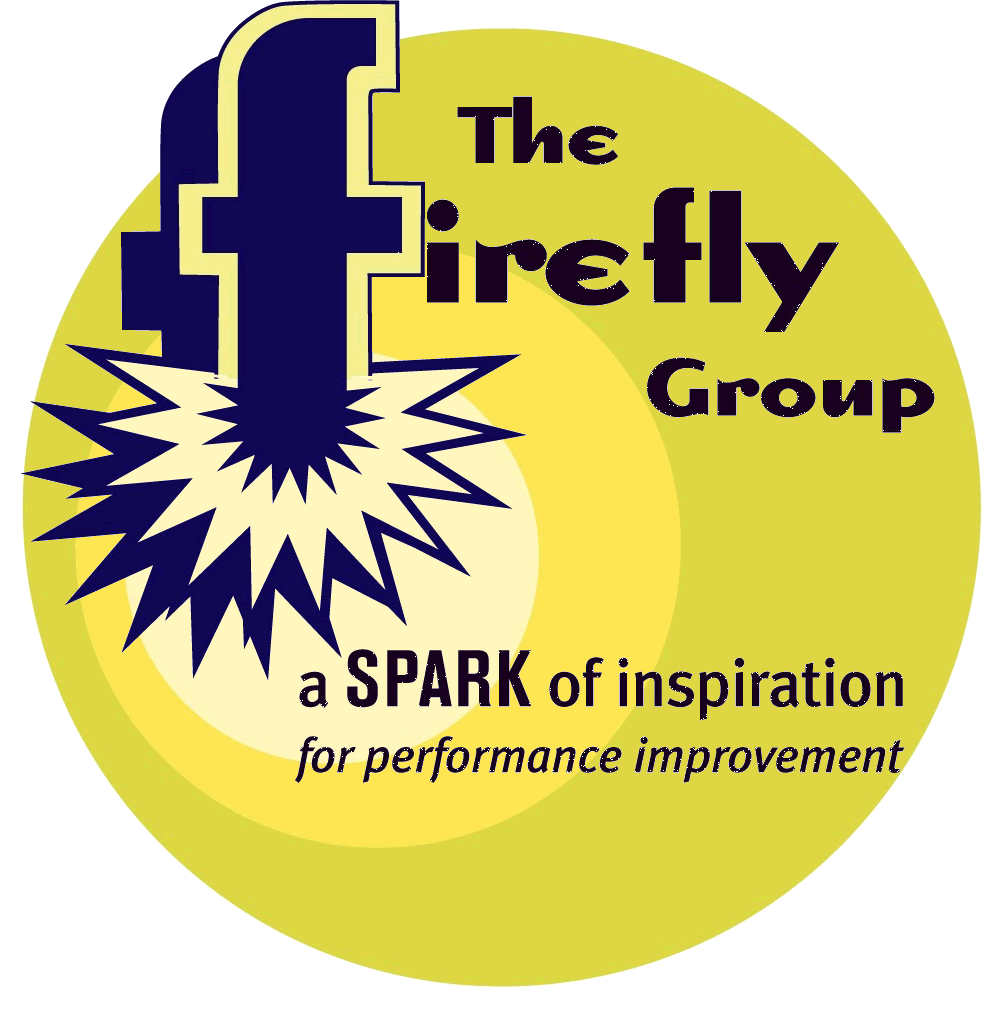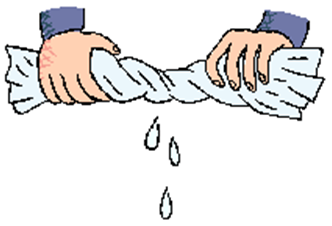


January
2010 
A first-time
opportunity to share
your expertise. Become published!
Here is your chance to be a contributor to the NASAGA Activities Book.
Soon to be published as a joint project between the North American Simulation
and Gaming Association and Pfeiffer/Wiley Publishers, this book of training
games, simulations, and activities will be written by and for trainers and
facilitators like you! Anyone can share their ideas and devices for making
learning memorable and meetings meaningful. Click HERE
to see the expectations and requirements then dig through your files -- or
invent something brand new! Either way, your contribution is due the end of
January.
Please consider sending an article and if you have questions, don't hesitate to contact me.
In this Issue:
|
Say
It Quick |
Discoveries bits of serendipity to inspire and motivate |
Ideas fuel for your own continuous learning |
Activities tips and tricks you can try today |
| Missed Messages | The Answer to Oil Spills | Learning That's Hair Raising | Meaning in the Moment |
This month's issue is the result of a romp across the Internet with my friend, Kurt Kuss when we learned of a discovery about hair. Read on to see the connections I found between hair, learning, oil in the ocean, and parenting -- beginning with this story in just 99 words.
Missed Messages
Waiting to board my flight at gate B7, I hear, for the third time, an important safety message blaring over the PA system. "Liquids and hazardous materials are not allowed beyond the security check point."
Now, everyone listening to this message has already cleared security and been stripped of offending liquids! If no one has found illegal items by now, I doubt they ever will. Yet the announcement has drowned out other useful information about flight and gate changes.
Result: we come to tolerate things that distract us and learn to ignore messages that could be vital.
 The
Answer to Oil Spills
The
Answer to Oil Spills
Oil and water. You know they don't mix but dump one into the other and you'll
find it is nearly impossible to separate them. Not any longer, thanks to Phil
McCrory, a hair stylist from Alabama.
Oil spills are a problem scientists and ecologists have struggled with for years especially with the number of super tankers plowing through ecologically sensitive regions of our oceans.
Typically, synthetic materials and chemicals are used to soak up sludge from tanker spills. Then the gooey stuff left over still has to be dumped into a landfill where it can contaminate the underground water supply. But McCrory's solution is both elegant and ecologically sound.
While cutting hair in his salon one day, McCrory had the TV tuned to a news broadcast of an oil spill. Footage of otters soaked in oil caught his attention. Why was oil on the creatures' coats and not in the water around them? Did hair have some special property for picking up slippery oil? Seeing the clippings at his feet, McCrory stuffed some into a nylon stocking then took off to his back yard. There he filled the kiddie pool with water, dumped in a can of oil and threw in the sock full of hair. When he pulled the slippery sock out, eureka! No more oil!
It turns out that hair has microscopic hooks that are designed especially to grab globs of oil from skin, air, and water. No wonder we have to wash our hair so often! Our Neanderthal ancestors probably needed hair for warmth but today, human hair mostly provides for the distribution of oils and pheromones. Hair is designed for dealing with oil! A pound of human hair, the amount collected at your local hair salon each day, can suck up a quart of oil.
 Now
hair salons across the country send their clippings to Matter of Trust, a
non-profit in San Francisco that transforms them into hair mats ready to clean
up spills large and small. Oil can be squeezed out of the hair mats allowing
them to be reused a dozen times. And when they have filled their usefulness,
the hair mats can be "seeded" with mushroom spores and turned into compost.
Now
hair salons across the country send their clippings to Matter of Trust, a
non-profit in San Francisco that transforms them into hair mats ready to clean
up spills large and small. Oil can be squeezed out of the hair mats allowing
them to be reused a dozen times. And when they have filled their usefulness,
the hair mats can be "seeded" with mushroom spores and turned into compost.
Spills cleaned up and oil recovered with no synthetics used, nothing in the landfill, and just a pile of compost left over. Maybe you don't need a degree in advanced bioengineering to solve a critical problem, just your own expertise applied in an uncommon way!
For more information
about this topic, try these links:
NPR interview with Phil McCrory:
http://www.npr.org/templates/story/story.php?storyId=17984608
Video demonstration of hair separating oil from water (scroll to "How
to do a classroom demo"): http://www.matteroftrust.org/programs/hairteacherdemo.html
Matter of Trust: http://www.matteroftrust.org/
Learning That's
Hair Raising
Phil McCrory made a surprising insight by connecting something from a totally
different field, oil spills, with his own expertise, hairstyling. If I take
his idea of cleaning up an oil spill and connect it to my area of interest,
learning, I can make some interesting discoveries too.
As a designer of education and training, I have an enormous quantity of important information that I want to convey to my learners. I might be tempted to use the most efficient way to cover the topic and simply give a lecture, dumping out the concepts, facts, and data. I'll expect learners to absorb it all and make use of it later in their work.
But unfortunately, all that information is too much. Like oil on water, it spreads out to a super thin layer floating on the surface where it's too slippery to gather up into a meaningful, useful quantity. People may be able to spit the information out appropriately for a test but, like using a synthetic to pick up oil, they are likely to throw what they "learned" into the landfill after the exam. If learners get information but don't have a way to tie it to their past experience, they are at a loss about how to make use of it in the future. They need something with hooks in it, like a hair mat, to embed learning in their memory and imbibe it with meaning.
Instead of a lecture, I might ask learners to compare and contrast different theories. I might invite them to invent a metaphor to deepen their ability to comprehend the topic. I could have them play a game that will give them practice in using a new idea. Or I may ask them to write an action plan for how they will apply their new knowledge and skill back on the job.
If learners are thought of as participants or even partners in the training room, they can make their own meaning from my teaching. With a collaborative effort, we can end up with rich compost from our time together that will produce fertile ground for future learning long after our one-time training encounter.
Meaning in
the Moment
What other meaning can we "squeeze out" of this month's discovery? I immediately
saw a connection to teaching and learning but you can probably come up with
other applications if you think about the properties of oil, water, and hair
and if you consider how they interact.
What implications are there for the way we think about leadership? Have you encountered leaders who crank out goals and expectations without considering the people who will implement them? What "hooks" would those workers need to clean up after such "toxic spills?"
What are the ramifications for parents and teenagers? Do adults provide enough "hooks" for young people to keep clear of poisonous peers as they learn adult ways?
How is this relevant if you wanted to make an important announcement in an airport? Would you spout your message blanketing everyone in the hope it will stick somewhere? Or, would you target your message, making it relevant to those who can hear it just when they need to hear it?
You might be thinking about communication, negotiation, stress management, diversity in the workplace, setting your career goals, or some other important topic. Whatever is on your mind, I invite you to play with it by linking it to hair mats and oil spills. Yes, it's an odd request but I'll wager you'll find value in the connections that evolve. And when you do, please share them with !
Read previous
issues. Click Archives!
To add or delete your name to our mailing list, email
with a short note in the subject line.
We want this newsletter to be practical, succinct, and thoughtful. If you have suggestions about how we can meet these criteria, please let us know! Send us an with your thoughts and ideas.
Home
| Services
| Products
| Mission
| Ideas |
The Group
| The Buzz
(c)
2005 The Firefly Group